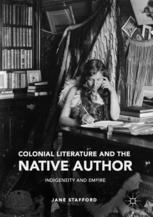

Most ebook files are in PDF format, so you can easily read them using various software such as Foxit Reader or directly on the Google Chrome browser.
Some ebook files are released by publishers in other formats such as .awz, .mobi, .epub, .fb2, etc. You may need to install specific software to read these formats on mobile/PC, such as Calibre.
Please read the tutorial at this link: https://ebookbell.com/faq
We offer FREE conversion to the popular formats you request; however, this may take some time. Therefore, right after payment, please email us, and we will try to provide the service as quickly as possible.
For some exceptional file formats or broken links (if any), please refrain from opening any disputes. Instead, email us first, and we will try to assist within a maximum of 6 hours.
EbookBell Team

4.1
10 reviewsThis book is the first study of writers who are both Victorian and indigenous, who have been educated in and write in terms of Victorian literary conventions, but whose indigenous affiliation is part of their literary personae and subject matter. What happens when the colonised, indigenous, or ‘native’ subject learns to write in the literary language of empire? If the romanticised subject of colonial literature becomes the author, is a new kind of writing produced, or does the native author conform to the models of the coloniser?
By investigating the ways that nineteenth-century concerns are adopted, accommodated, rewritten, challenged, re-inscribed, confronted, or assimilated in the work of these authors, this study presents a novel examination of the nature of colonial literary production and indigenous authorship, as well as suggesting to the discipline of colonial and postcolonial studies a perhaps unsettling perspective with which to look at the larger patterns of Victorian cultural and literary formation.